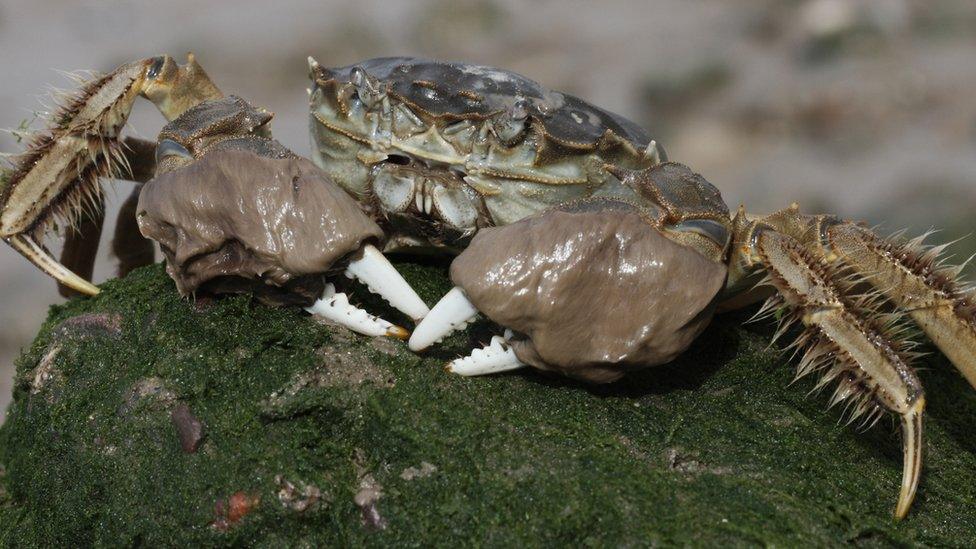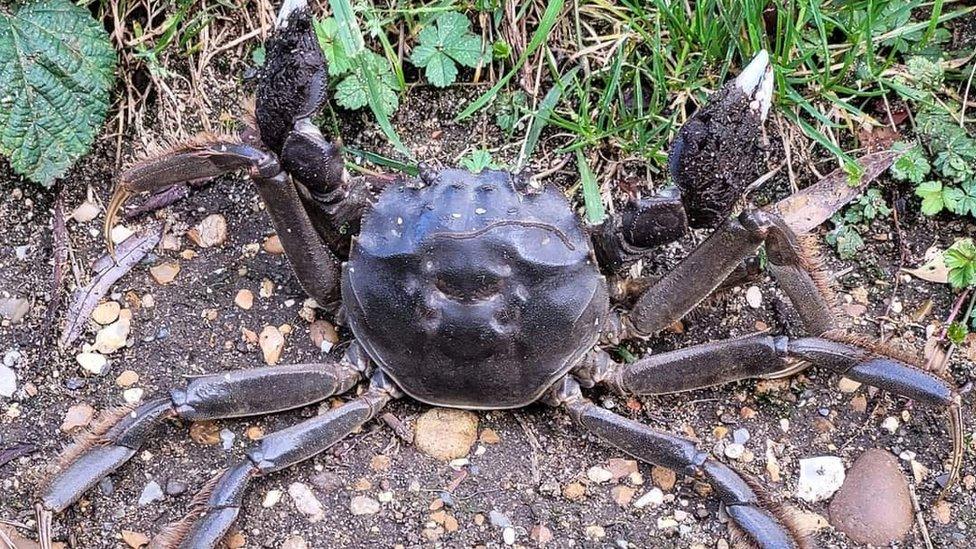First UK trap set to tackle Chinese mitten crab invasion
- Published
A pair of the crabs, which have fur on their claws, were filmed at Kings Dyke in Whittlesey, Cambridgeshire
Scientists have installed the UK's first trap to catch an invasive species of crab which can grow bigger than a dinner plate.
Chinese mitten crabs can have a negative impact on riverbanks and biodiversity.
The trap, at Pode Hole in Lincolnshire, aims to prevent the crabs migrating to breeding grounds, Dr Paul Clark, from the Natural History Museum, said.
Dr Clark said it was an attempt to control the population.
The Chinese mitten crab originates in South East Asia and was considered to be established in the River Thames in 1973.
Since then it has been found in other waterways in the UK, including in the Humber and Tyneside, with recent sightings in Peterborough.

The Chinese mitten crab, which can grow to the size of a dinner plate, has distinctive white fur on its legs and is also known as the Shanghai hairy crab
Dr Clark, a researcher at the department of life sciences at the museum, has been studying the creatures for more than 40 years.
He said the creatures were "eating us out of house and home".
"Our biodiversity is being depleted because of them," he told BBC Radio Lincolnshire.
The trap has been installed as part of a project in collaboration with Lincolnshire Wildlife Trust, the Welland and Deepings Internal Drainage Board and the Natural History Museum.
Dr Clark said they had been given special permission by the Environment Agency to test the trap at Pode Hole.
"If it doesn't work we will take it straight out and modify it, but if it works we might put another three traps in the area."
Although edible, and commanding a price of about £85 each in Singapore, Dr Clark said the conditions of the license meant they had to freeze the crabs which will be used for further scientific analysis .
The Natural History Museum is asking people to report sightings to help prevent the movement of crab eggs.
You can record any sighting online, external and include a photograph of the crab if you have one.

Follow BBC East Yorkshire and Lincolnshire on Facebook, external, X (formerly Twitter), external, and Instagram, external. Send your story ideas to yorkslincs.news@bbc.co.uk, external
Related topics
- Published11 October 2023
